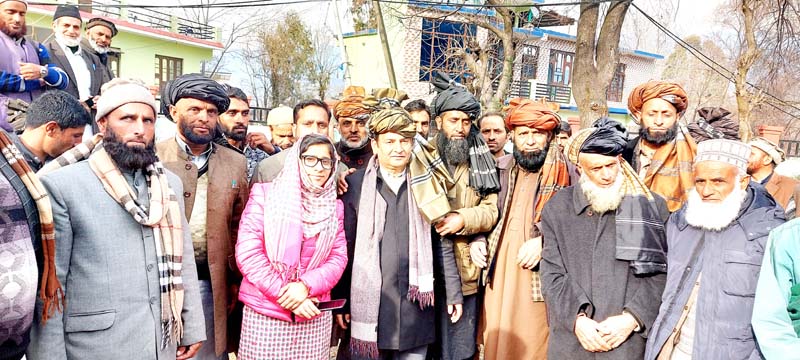Excelsior Correspondent
JAMMU, Mar 7: Treating tribal groups of Jammu and Kashmir at par with other Scheduled Tribes (STs) of India undoubtedly reversed the historical injustice faced by Gujjars, Bakerwals, Gaddis, Sippis and Shinas which were facing exclusion from mainstream society.
This was stated by noted tribal Researcher Dr Javaid Rahi during an awareness programme about newly introduced laws/legislations made applicable to Jammu and Kashmir, held here this afternoon.
Dr Rahi stated that new laws including Forest Rights Act-2006, Forest Conservation Act 1980, SC/ST Atrocities Act 1989 and Reorganisation Act 2019 which amends Delimitation Law to reserve Constituencies for Tribes, Amendments in Panchayati Raj Act and many new laws will pull out the Tribes from marginalization and social exclusions.
He further said that tribals constitute 15 to 20 percent population of Jammu and Kashmir and they will get befitted under new laws which treat tribal of J&K at par with other tribal groups of India.
Dr Rahi said due to new laws three DDC members are elected as District Chiefs on reserve seats besides 38 persons from Gujjar/Bakerwal community have been elected to first-ever District Development Council elections in Jammu and Kashmir comprises of total 280 members in 20 districts.
He said the effective implementation of the Scheduled Tribes and other Forest Dwellers (Recognition of Forest Rights) Act, 2006, which recognizes the individual as well as community rights over forest resources, should have ended the historical injustice caused by the non-existence of laws prior to 2019.
Other speakers stated that the Forest Rights Act is that landmark legislation which promised to undo the historical injustice meted out to forest-dwelling communities by recognizing their rights over the land, forest and natural resources that they conserved and managed traditionally for generations. The enactment of this Act was the result of years of struggles endured by these communities to get their rights over their homes recognized by the Government of India.


